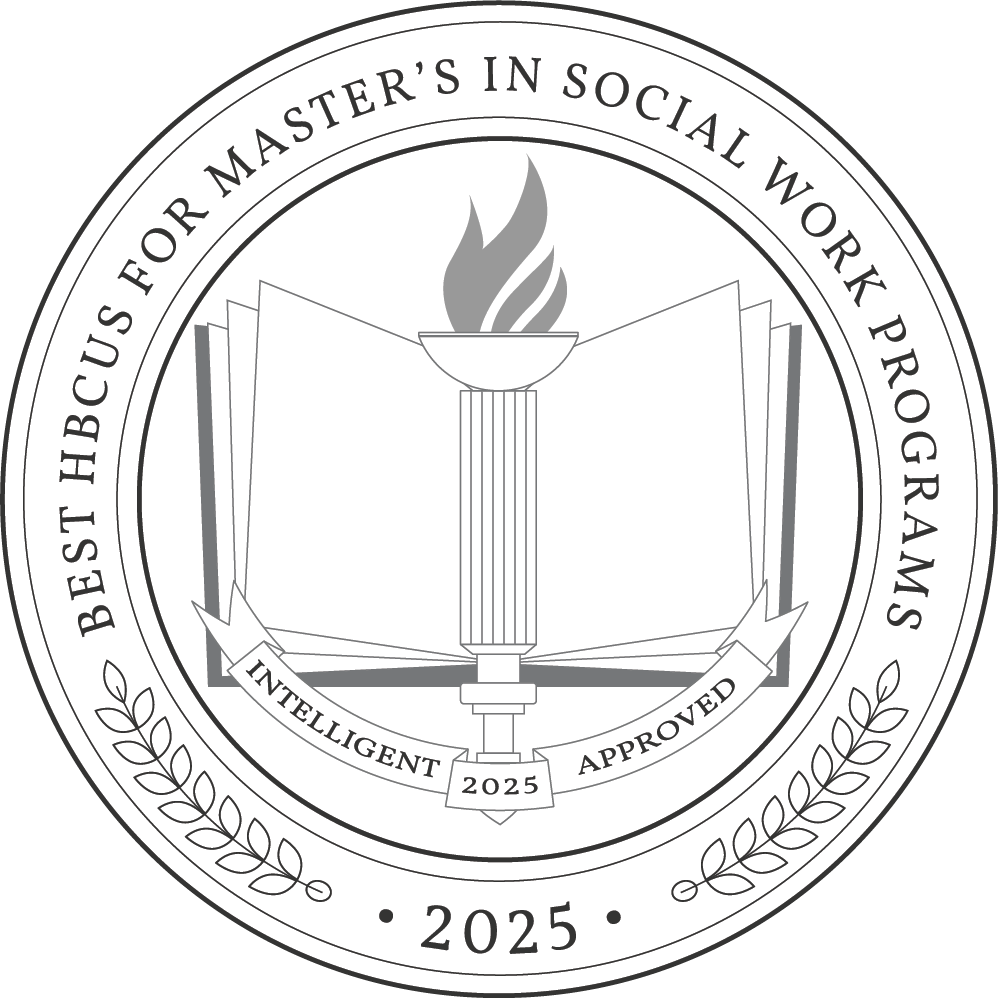When considering a master’s in social work (MSW) degree, HBCUs are exceptional choices for Black students. These institutions promote diversity and cultural inclusivity and play a crucial role in increasing the number of Black professionals in the social work field. HBCU MSW programs are designed to prepare students for different social work careers, including clinical practice, healthcare, and school social work, among others. With a focus on empowering communities, these programs provide graduates with the skills needed to make a meaningful impact.
In this article, we’ll explore why HBCU MSW programs are particularly beneficial for Black students, what you can expect during your studies, the core courses you’ll take, career opportunities after graduation, and tips for choosing the right program for your goals.
Why Attend an HBCU Master’s in Social Work Program?
With a focus on elevating the educational experience of Black students, these students may prefer to attend an HBCU for their MSW due to the long-term benefits these institutions offer. According to a 2024 report from the White House Council of Economic Advisors, research “finds that HBCUs are effective in cultivating a sense of belonging and a “culture of success” among students…[and] offer a unique space for students who have been historically excluded from predominantly white institutions.”
This supportive environment leads to greater engagement in their future careers and overall well-being. By fostering a sense of belonging and empowerment, HBCUs equip Black students with the confidence to thrive, professionally and personally.
Why Trust Us
The Intelligent.com Higher Education Team is dedicated to providing students with independent, equitable school and program rankings and well-researched resources. Our expert-driven articles cover topics related to online colleges and programs, paying for school, and career outlooks. We use data from the U.S. Department of Education’s College Scorecard, the National Center for Education Statistics, and other reputable educational and professional organizations. Our academic advisory team reviews content and verifies accuracy throughout the year for the most current information. Partnerships do not influence rankings or editorial decisions.
- Analyzed over 2,000 national, accredited, and nonprofit colleges and universities
- 800+ rankings pages are reviewed and updated yearly
- Content is informed by reputable sources, surveys, and interviews with academic advisors and other experts
- Over 100 data points are reviewed for accuracy and quality throughout the year, including sources
How we rank schools
Our list features the best HBCUs for Master’s in Social Work degree programs at top colleges nationwide. Each school featured is a nonprofit, accredited institution — either public or private — with a high standard of academic quality for post-secondary institutions.
We evaluated each school’s program on tuition costs, admission, retention and graduation rates, faculty, reputation, and the student resources provided for online students. We collected data from trusted sources like the National Center for Education Statistics, individual school and program websites, school admissions counselors, and other data sources. Then, we calculated the Intelligent Score on a scale of 0 to 100 based on the following criterion:
Academic Quality:
- Admission rate versus enrollment rate
- Retention rate of students who return after year one
- Accreditation status (regional and programmatic)
- Nonprofit status, both private and public institutions
Graduation Rate
- Overall graduation rate
- Total number of currently enrolled students, including diversity metrics
- Student-to-faculty ratio
Cost and ROI
- In-state and out-of-state per-credit tuition rates and fees
- Required credits to graduate
- Earning potential after graduation
- Availability of federal student loans, scholarships, and other financial aid options
Student Resources
- Available student services for online-only and hybrid programs
- On-campus amenities like tutoring centers and the number of libraries
Read more about our ranking methodology.
Best 14 HBCU Master's in Social Work Programs
FiltersInstitution Type
Status
- Intelligent Score
- Alphabetically By University Name
- Acceptance Rate
- Enrollment
- In-state Graduate Tuition
- Out-of-state Graduate Tuition
- In-state Undergraduate Tuition
- Out-of-state Undergraduate Tuition

Florida Agricultural and Mechanical University
Intelligent Score: 99.88In-state: $3,152
Out-of-state: $14,524
In-state: $8,019
Out-of-state: $8,019
SAT: 1030-1150
ACT: 20-24
In-State: $405
Out-of-State: $1,022
On-Campus
Council on Social Work Education
79

Howard University
Intelligent Score: 98.98In-state: $26,464
Out-of-state: $26,464
In-state: $32,248
Out-of-state: $32,248
SAT: 1130-1260
ACT: 22-26
$2,027
On-Campus
Council on Social Work Education
45-60

North Carolina A&T State University
Intelligent Score: 98.18In-state: $3,540
Out-of-state: $17,050
In-state: $4,745
Out-of-state: $4,745
SAT: 960-1130
ACT: 17-22
In-State: $272
Out-of-State: $983
On-Campus
Council on Social Work Education
30-60

Fayetteville State University
Intelligent Score: 97.52In-state: $2,982
Out-of-state: $14,590
In-state: $3,438
Out-of-state: $3,438
SAT: 840-1000
ACT: 16-20
In-State: $191
Out-of-State: $805
On-Campus
Council on Social Work Education
35-61

North Carolina Central University
Intelligent Score: 96.56In-state: $3,728
Out-of-state: $16,435
In-state: $4,740
Out-of-state: $4,740
SAT: 850-1010
ACT: 15-19
In-State: $263
Out-of-State: $1,002
On-Campus
Council on Social Work Education
35-60

Delaware State University
Intelligent Score: 96.18In-state: $7,038
Out-of-state: $16,960
In-state: $5,160
Out-of-state: $5,160
SAT: 810-1010
ACT: 17-22
In-State: $455
Out-of-State: $948
On-Campus
Council on Social Work Education
30-60

Albany State University
Intelligent Score: 95.76In-state: $4,064
Out-of-state: $14,786
In-state: $3,438
Out-of-state: $3,438
SAT: 740-900
ACT: 15-18
In-State: $169
Out-of-State: $616
On-Campus
Council on Social Work Education
64

Tennessee State University
Intelligent Score: 94.86In-state: $7,854
Out-of-state: $20,574
In-state: $9,276
Out-of-state: $9,276
SAT: N/A
ACT: N/A
In-State: $458
Out-of-State: $1,040
On-Campus
Council on Social Work Education
60

Grambling State University
Intelligent Score: 93.40In-state: $5,140
Out-of-state: $5,140
In-state: $5,110
Out-of-state: $5,110
SAT: 860-1000
ACT: 15-19
In-State: $317
Out-of-State: $693
On-Campus
Council on Social Work Education
39-63

Norfolk State University
Intelligent Score: 91.88In-state: $5,752
Out-of-state: $16,920
In-state: $8,820
Out-of-state: $8,820
SAT: 840-1020
ACT: 15-20
In-State: $378 - $504
Out-of-State: $895 - $1,194
On-Campus
Council on Social Work Education
60

Clark Atlanta University
Intelligent Score: 90.20In-state: $18,990
Out-of-state: $18,990
In-state: $14,814
Out-of-state: $14,814
SAT: 880-1040
ACT: 17-20
$951
On-Campus
Council on Social Work Education
38-59

Jackson State University
Intelligent Score: 87.81In-state: $8,270
Out-of-state: $8,270
In-state: $8,270
Out-of-state: $8,270
SAT: 890-1050
ACT: 17-20
In-State: $474
Out-of-State: $1,474
On-Campus
Council on Social Work Education
30-57

Alabama A&M University
Intelligent Score: 87.26In-state: $8,610
Out-of-state: $17,220
In-state: $10,128
Out-of-state: $10,128
SAT: 840-1020
ACT: 15-20
In-State: $958
Out-of-State: $1,376
On-Campus
Council on Social Work Education
30-60

Alabama State University
Intelligent Score: 85.73In-state: $8,328
Out-of-state: $16,656
In-state: $7,416
Out-of-state: $7,416
SAT: 844-1049
ACT: 14-20
In-State: $412
Out-of-State: $824
On-Campus
Council on Social Work Education
36-60
What to Expect from an HBCU Master’s in Social Work Program
These degree programs offer students a comprehensive educational experience in a culturally inclusive environment. HBCUs are committed to elevating Black professionals, aiming to increase the representation of Black graduates in social work, where their perspectives and experiences are invaluable. As a student, you’ll gain essential knowledge in social justice, community engagement, and clinical practice, all through the lens of empowering marginalized communities.
These curricula often require a thesis, which allows students to explore a social work issue deeply, develop research skills, and contribute original knowledge to the field. This requirement is particularly beneficial as it prepares students for advanced roles in policy-making, administration, and clinical settings.
Potential courses you’ll take in an HBCU master’s in social work program
- Human Behavior and the Social Environment: This foundational course explores the relationship between individuals and their social environments, focusing on psychological, social, and cultural factors.
- Social Work Practice with Individuals and Families: Another typical core requirement, this class builds skills in evidence-based interventions and techniques for working with individuals and families in different settings.
- Social Welfare Policy and Services: This course examines the history, development, and impact of social welfare policies, emphasizing policy analysis and advocacy.
- Research Methods in Social Work: In this upper-level class, students are introduced to qualitative and quantitative research methods, preparing them to conduct independent research and contribute to the field.
What Can I Do with a Master’s in Social Work Degree?
You’ll have a broad range of career opportunities after graduating with your MSW, including clinical, school, and healthcare social work occupations. Additionally, some graduates pursue roles in social services management, overseeing programs that address homelessness, child welfare, and substance abuse.
With a median salary of $58,380, these careers pay higher wages than the national median for all occupations. They are expected to add 67,300 jobs yearly over the next decade.
Career outlook
- Mental Health and Substance Abuse Social Worker — Individuals in this field provide counseling and support to individuals struggling with mental health issues or substance abuse, helping them develop coping strategies and connect with necessary resources.
- Median annual salary: $55,960
- Projected employment growth (through 2032): 7%
- New jobs projected: 54,700
- Healthcare Social Worker — These professionals assist patients and their families in navigating the healthcare system, offering support during medical crises and helping them access necessary care and services.
- Median annual salary: $62,940
- Projected employment growth (through 2032): 7%
- New jobs projected: 54,700
- School Social Worker — School social workers work within educational settings to support students’ academic and social success, addressing bullying, family challenges, and mental health concerns.
- Median annual salary: $53,940
- Project employment growth (through 2032): 7%
- New jobs projected: 54,700
How to Choose the HBCU Master’s in Social Work Program That’s Right For You
Consider your needs and goals
There are many things to consider when choosing an MSW degree program, but start by focusing on a few key factors, such as:
- What aspects of social work am I most enthusiastic about?
- Do I need a part-time or full-time program?
- Would an asynchronous or synchronous format best fit my schedule?
For example, those interested in therapy will be well-suited for clinical work, while students wanting to work in medical settings may opt for healthcare social work. Similarly, individuals passionate about influencing social change may prefer to specialize in policy advocacy.
Of course, you’ll also want to focus on your logistical needs, such as part- or full-time learning and asynchronous or synchronous formats. Many students with more time for their studies prefer full-time, synchronous programs for their immersive learning experience, while part-time, asynchronous programs may be better for those balancing their education with other responsibilities — like a full-time job or raising a family.
Research schools and programs
Now that you’ve clarified your needs and goals, it’s time to research potential MSW programs. Consider using the following questions to guide your search:
- Is the program accredited by the Council on Social Work Education (CWSE)?
- What are the eligibility and admission requirements?
- Does the curriculum align with my intended specialization?
- Are there faculty members whose research or practice areas excite me?
- What field placement opportunities are available?
This information can be found on program websites, by contacting an admissions counselor, or by attending a virtual open house.
Determine how you’ll pay for your master’s in social work degree program
For many students, financing their degree with minimal debt is a top priority. If you’re in a similar position, start by filing the FAFSA to determine your eligibility for federal financial aid, including grants and work-study. Next, seek out scholarships and grants for social work students, which don’t need to be repaid. For those seeking part-time work, consider applying for assistantships that offer tuition remission or stipends. If you’re employed, ask if your employer provides tuition reimbursement, which can significantly reduce costs.
If loans are necessary, prioritize federal loans, which often offer lower interest rates and more flexible repayment options than private loans.
HBCU Master’s in Social Work Programs Frequently Asked Questions
How do I apply to an HBCU master's in social work program?
While some application requirements may vary, many programs share similar criteria, including:
- Bachelor’s degree from an accredited institution
- Official transcripts from all previously attended institutions
- Letters of recommendation
- Personal statement or essay
- Resume or CV
- GRE scores, if required
It’s crucial to speak with an admissions counselor before applying. They can provide guidance on specific requirements, deadlines, and tops to strengthen your application.
How much does a master's in social work degree cost?
These degrees cost an average of $20,513 per year in tuition. However, tuition is just one portion of the overall expense. You’ll also want to budget for additional costs like textbooks, technology fees, health insurance, commuting, and living expenses. Field placements may also incur additional travel expenses. Considering all these factors is essential to get a complete financial picture and plan accordingly.
How long does it take to complete a master's in social work degree program?
An MSW typically takes two years to complete for full-time students, while part-time students may take three to four years. If you’re planning to study asynchronously, it’s important to remember that the added flexibility of learning at your own pace can extend the completion time.
Be sure to double-check each program’s credit requirements, as these can vary and directly impact the time it takes to earn your degree. Understanding these timelines helps you plan your academic journey more accurately, balancing your personal and professional commitments with your educational goals.

